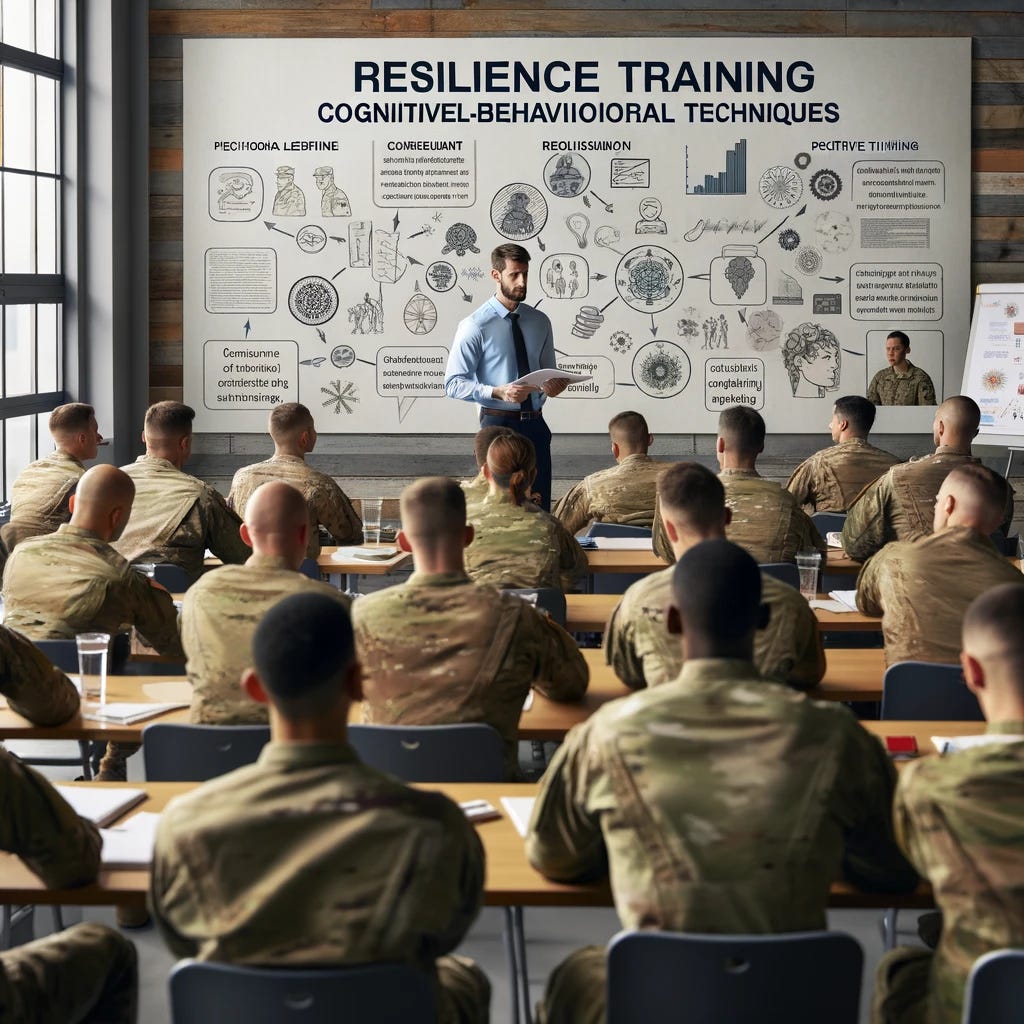Decision-Making Under Pressure: Psychological Insights into Military Strategy
Decision-Making Under Pressure: Psychological Insights into Military Strategy

Understanding the Cognitive Processes in High-Stakes Environments
Decision-making in high-pressure environments, such as those faced by military strategists, is a complex psychological process that involves various cognitive and emotional factors. Military leaders often face situations where rapid and effective decisions are critical, and understanding the underlying psychological mechanisms can significantly enhance strategic outcomes. The high-stakes nature of military operations requires a level of decision-making that goes beyond everyday scenarios, where the consequences of a wrong decision can be catastrophic.
Research in cognitive psychology has shed light on how individuals process information and make decisions under stress. Time pressure, uncertainty, and high stakes are some of the factors that significantly influence decision-making processes in military contexts. Under such conditions, decision-makers tend to rely more on intuitive thinking, also known as System 1 thinking, characterized by fast, automatic, and emotion-driven processes (Kahneman, 2011). This type of thinking can be beneficial in situations requiring quick reactions but can also lead to biases and errors in judgment.
Moreover, stress and high pressure can impact cognitive functions such as attention, memory, and problem-solving abilities. Stress-induced arousal can lead to a narrowing of attention, often referred to as tunnel vision, which limits the ability to consider a wide range of information and options (Driskell & Salas, 1996). Memory can also be affected, with stress impairing the recall of critical information necessary for making informed decisions. Furthermore, problem-solving abilities may be compromised, as stress can lead to a preference for familiar or simple solutions rather than innovative or optimal strategies.
To mitigate these challenges, military strategists often employ various techniques and tools. Scenario planning, for example, helps in anticipating different outcomes and preparing for various contingencies. Training and simulations are also crucial in enhancing decision-making skills under pressure. These practices not only improve cognitive abilities but also help in managing emotional responses, allowing for more rational and less impulsive decisions.
The Role of Emotional Intelligence in Military Strategy

Emotional intelligence plays a critical role in effective decision-making under pressure, particularly in the context of military strategy. Emotional intelligence involves the ability to recognize, understand, and manage one’s own emotions, as well as the emotions of others. In high-pressure environments, such as those experienced in military operations, the capacity to maintain emotional control and make clear-headed decisions is crucial.
Leaders with high emotional intelligence are better equipped to handle stress, maintain focus, and make balanced decisions, even in the face of uncertainty and risk. They are also more adept at understanding the emotional states of their team members, which is essential for maintaining morale and ensuring effective communication and collaboration. Emotional intelligence contributes to building trust and cohesion within a team, which is vital for successful military operations.
Furthermore, emotional intelligence helps in navigating complex social dynamics, such as those involved in negotiations, alliances, and conflicts. A leader with high emotional intelligence can more effectively interpret the intentions and emotions of others, including adversaries, which is crucial for strategic decision-making. This ability to empathize and understand different perspectives can lead to more effective conflict resolution and cooperation strategies.
Developing emotional intelligence in military leaders involves targeted training and continuous self-reflection. Programs that focus on emotional awareness, regulation, and relationship management can significantly enhance a leader’s ability to make sound decisions under pressure. Additionally, fostering a culture that values emotional intelligence can improve overall organizational effectiveness and resilience in the face of challenges.
Integrating Advanced Technologies in Military Decision-Making

The integration of advanced technologies in military strategy has revolutionized decision-making processes, providing leaders with enhanced capabilities to make informed decisions under pressure. Technologies such as artificial intelligence (AI), data analytics, and simulation tools offer new ways to process and interpret vast amounts of information, identify patterns, and predict outcomes.
AI and machine learning algorithms can assist in analyzing complex data sets, including intelligence reports, satellite imagery, and communication intercepts, to provide insights that would be difficult for humans to discern. These technologies can help identify potential threats, predict enemy movements, and suggest optimal strategies. However, it’s essential to recognize the limitations of AI, including potential biases and the need for human oversight to ensure ethical and responsible use.
Data analytics plays a crucial role in military decision-making by enabling the processing and visualization of large data sets. Analytical tools can help military strategists to understand trends, assess risks, and evaluate the effectiveness of different courses of action. By leveraging data analytics, military leaders can make more informed decisions based on empirical evidence rather than solely relying on intuition or experience.
Simulation and modeling technologies are also vital in military strategy, allowing for the testing and evaluation of various scenarios in a controlled environment. These tools enable leaders to explore the potential outcomes of different strategies and tactics without the risks associated with real-world operations. Simulations can also be used for training purposes, providing military personnel with realistic experiences that prepare them for high-pressure decision-making in actual combat situations.
As technology continues to advance, it is imperative for military leaders to stay abreast of emerging tools and integrate them effectively into their decision-making processes. The appropriate use of technology can enhance strategic capabilities, improve accuracy in decision-making, and ultimately lead to more successful military operations.
FAQ
- How does stress impact decision-making in military contexts? Stress can lead to reliance on intuitive thinking, impair attention and memory, and limit problem-solving abilities. It may cause biases and errors in judgment, impacting the effectiveness of decisions.
- What role does emotional intelligence play in military strategy? Emotional intelligence is crucial for managing stress, maintaining focus, understanding team emotions, and navigating complex social dynamics. It enhances trust, cohesion, and effective communication in military operations.
- How can technology improve decision-making in military strategy? Advanced technologies like AI, data analytics, and simulation tools help process vast information, predict outcomes, and test scenarios. They provide insights, enhance accuracy, and prepare personnel for real-world situations.
- What techniques help military leaders make better decisions under pressure? Scenario planning, training, simulations, and emotional intelligence development are key techniques. They prepare leaders for contingencies, improve cognitive abilities, and manage emotional responses.
- Why is it important for military leaders to have human oversight of AI technologies? Human oversight is crucial to ensure ethical use, address potential biases, and make responsible decisions that AI alone may not be capable of making, maintaining a balance between technological and human judgment.

For More Information:
- Kahneman, D. (2011). Thinking, Fast and Slow. Farrar, Straus and Giroux.
- Driskell, J. E., & Salas, E. (1996). Stress and Human Performance. Lawrence Erlbaum Associates.
- National Defense University: Center for Technology and National Security Policy
- RAND Corporation: Military Strategy and Doctrine Research
References
Driskell, J. E., & Salas, E. (1996). Stress and Human Performance. Lawrence Erlbaum Associates.
Kahneman, D. (2011). Thinking, Fast and Slow. Farrar, Straus and Giroux.
Dr. Jerry D. Smith Jr. is a clinical psychologist and empathic expert specializing in human empowerment and leadership.
More from Dr. Jerry Don Smith Jr. and Operational & Defense Psychology Review






